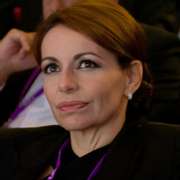The governor of New York, Andrew Cuomo, heroically declared that “We’re not going to put a dollar figure on human life.” This was meant to be a rallying-cry from a man whose state has been overwhelmed by this pandemic. In effect most States and leaders round the world agreed with him. By imposing States of Emergencies and generalised lockdowns, the message was clear: we will save human lives at all costs.
This sounds good and gives some hope to people that were overwhelmed themselves with fear and panic. The State would look after them. However, is this really the case? Is human life invaluable? Should it be and at what cost to society and future generations?
I’m well aware these are uncomfortable questions and that I may be treading a moral minefield. The very fact I’m asking them will no doubt hail on me much fury from all those with older parents or with loved ones considered to be of “high risk”. The political left will go up in arms. As will the Catholic Church, where all life is considered sacred.
I ask the reader to bear with me and read on. Perhaps the question will not seem as callous and heartless as it first appears. As a true lover of free speech, I hold dearly that no questions are off limits. Questioning allows us to think through most assumptions – at least they should serve that purpose. Nothing should be taken at face value just because it sounds good and makes us feel safe. It’s also easier to just go along with what the “majority” think instead of doing the hard work of thinking for ourselves.
As societies wrestle with the idea of coming out of lockdown we need to give further thought to how much a human life is worth. Relaxing lockdown is doubtless to bring about a 2nd waive of infections and deaths. We would be naïve to think otherwise. How many more deaths are we as a society willing to bare until we impose general or partial lockdown measures again, perhaps requiring greater stimulus packages?
Getting back to what Governor Cuomo said, people seem to be anchored to a notion that there is no price we can put on human life. Yet we put a price on human life all the time. We do this when we decide not to put all the money in the world on the prospect of pushing the risk of dying as low as it can go. We could, for example, make every car cost 1 million dollars by engineering maximum safety; we could treat every flight as if it were a rocket launch checking and rechecking everything prior to take off. The reason we do not do this is because we have put a price on human life. The fact that this trade-off is implicit is beside the point. We have weighed some implicit price against the time and the money required to guarantee minimum loss of life.
Up until now, there hasn’t been much of a trade-off between the economy and public health. Most, on the left and the right, would agree that the goal of helping the economy and the goal of saving lives have pointed to some form of lockdown. No health system was prepared and precious time was lost when mass testing and contact tracing could have been widely available. A do-nothing scenario was projected, in some models, to have led to about 2 million US deaths and 500,000 in Britain. If all you care about is business and money, the lockdown was still your best option.
But as lockdown continues and the economic costs become more striking, a trade-off will have to be made. Few would argue that we should keep total lockdown until the virus is totally gone or we have a vaccine that puts everyone out of risk.
Following Mr. Trump’s cue some are beginning to argue that “the cure is worse than the disease.” Over the past weeks, protestors across the US have held demonstrations to demand “liberation” from lockdown measures. As unemployment figures reach historic levels, people’s businesses close and debt piles on, the costs of saving lives are beginning to seem too high. Some would argue that we should just roll the dice, open everything up and let the virus work its way through society, sheltering those who are more vulnerable.
Perhaps it’s a mistake to think of this as the economy vs. lives. This only serves to polarise the debate between democrats supporting a lockdown and republicans preferring a back to “business as usual” world. What it’s ultimately about is a false trade-off between human flourishing vs. human flourishing. People fighting for a reduction in lockdown measures aren’t necessary saying that they give greater weight to the economy. It’s true that many want and desperately need to get their jobs back. But they also want people to be able to get married, attend funerals, have access to operations that have been delayed, spend time with elderly parents and loved ones and so forth.
What about those that argued against lockdown in the first place? Again, they are deluding themselves. People are comparing the costs of a world before lockdown (and before the virus) to the costs of doing nothing or doing much less in terms of social distancing and letting the contagion explode. What would the economy look like when literally everyone you know, knows someone who had died? Where is the economy then when we have just given the exponential curve free rein with contagion? People often don’t make that comparison. They are comparing the obvious and scary economic and social effects of lockdown, which will only increase in the coming months, to the way they remember the world of yesteryear. But that world has gone, until we find an effective treatment or a vaccine, which may still take some time.
In a “do nothing” scenario we would see hundreds of thousands die or in some countries millions. As people got sick they would flood the hospitals and that would have caused enormous collateral damage. Economic damage cannot be disentangled from all the lives lost. Deaths reduce the productive capacity of the economy.
It is true, that people are willing to accept some number of deaths for life to go back to “normal” or almost normal. We know that in the worse year the influenza can kill up to 80 000 people in the US. If Covid-19 lands up killing around 80 000 in the US, many will argue we overreacted and there was no need for lockdown and such extreme fiscal stimulus. 80 000 is a statistic; it’s an anchor we’ve grown to accept. No one gives much notice to it unless they themselves lost a loved one.
But what if we were given a choice that we could sacrifice 100 people to rid ourselves of this virus. Clearly many of us would balk at that. Seen at a statistical level we are not emotionally invested. Yet an identifiable human life is intolerable. Lenin once stated “One death is a tragedy, a million is a statistic.”
Rudy Giuliani recently uttered that 80 000 wasn’t really that much. Yet 9/11 “only” killed 2800 people, decisively less than the flu, when he was mayor of New York. If anyone at the time, or now, said that wasn’t that many people, they would be considered a monster. It’s all about perception and how we frame the problem.
Some anchor on Fox News stated that “we did all this to save 80 000 lives. We were told it would be much more.” This is a good example of an unthinking person. It completely ignores the fact that it could land up being a number as “low” as that because Americans spent one month in quarantine. An analogy would be: I say I need a fire extinguisher and acquire one. There is a fire in my house. I use the fire extinguisher and there is little damage. At which point my neighbour asks why I was foolish to get a fire extinguisher in the first place since there was hardly any damage. This is known as the first paradox of quarantine. If social distancing works by lessening the contagion those who were against social distancing will feel vindicated that we overreacted.
Assigning an economic value to life is taboo. But politicians will be forced to do so. There is a sensible limit to how much containing a pandemic should cost. Debts will need to be repaid, and it is a price we leave future generations. Perhaps more lives could have been saved over time if money went instead to making roads safer or spent on medical research. How long it takes us to control the pandemic, how long it will take the economy to recover and how deep the recession will be are all still unknowns. That’s what makes putting a price on life under such uncertain conditions difficult. But this will have to be done.












